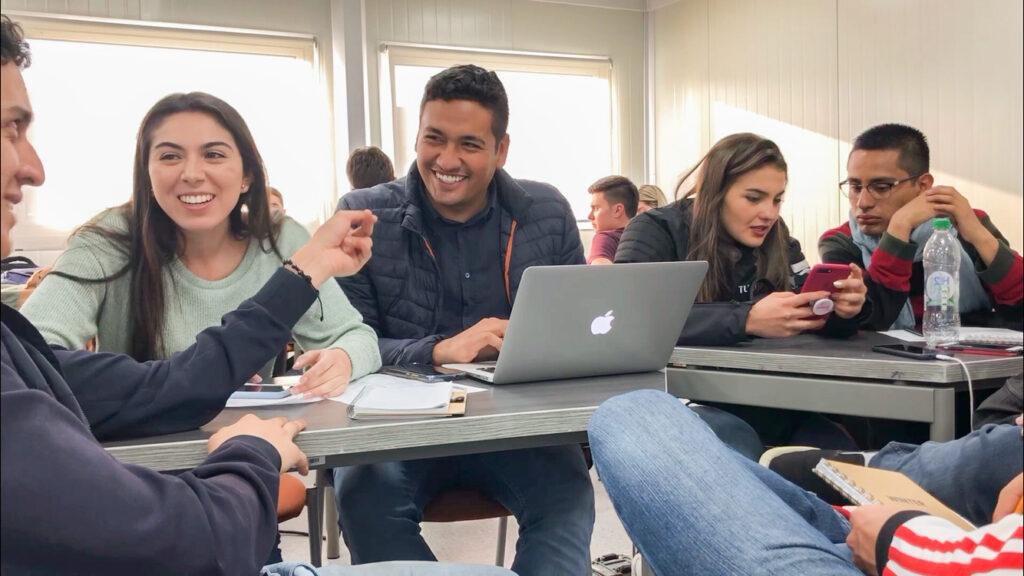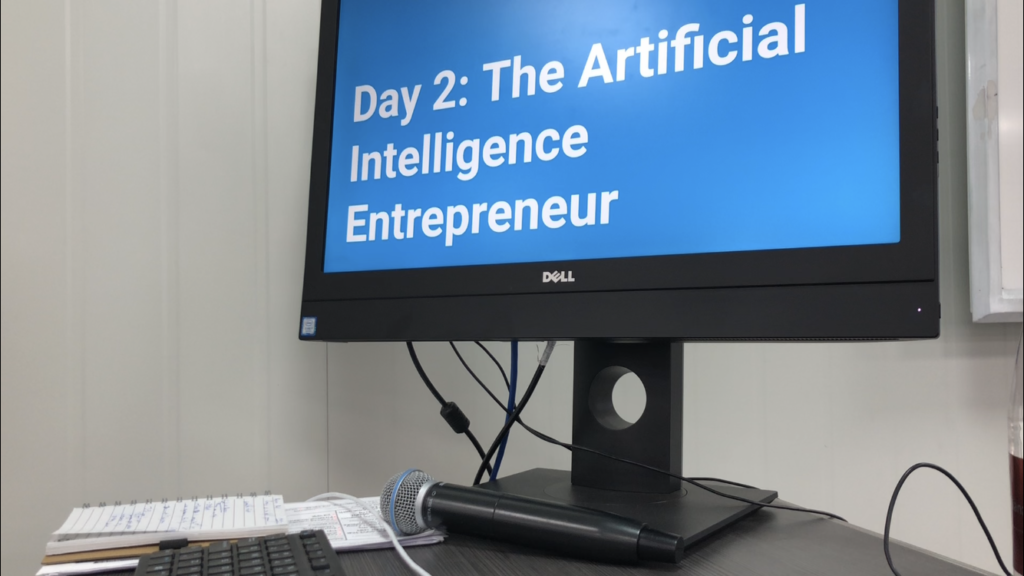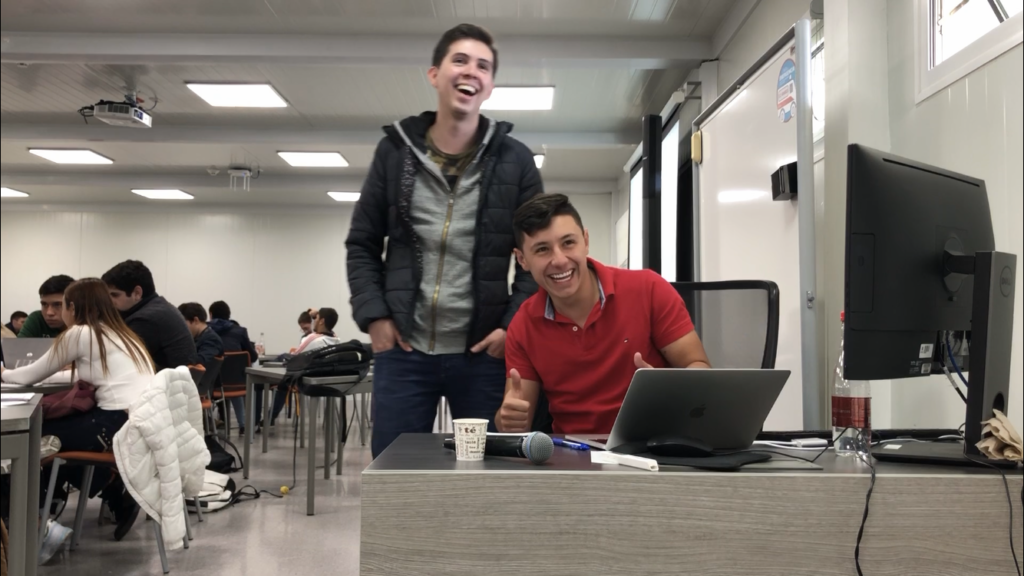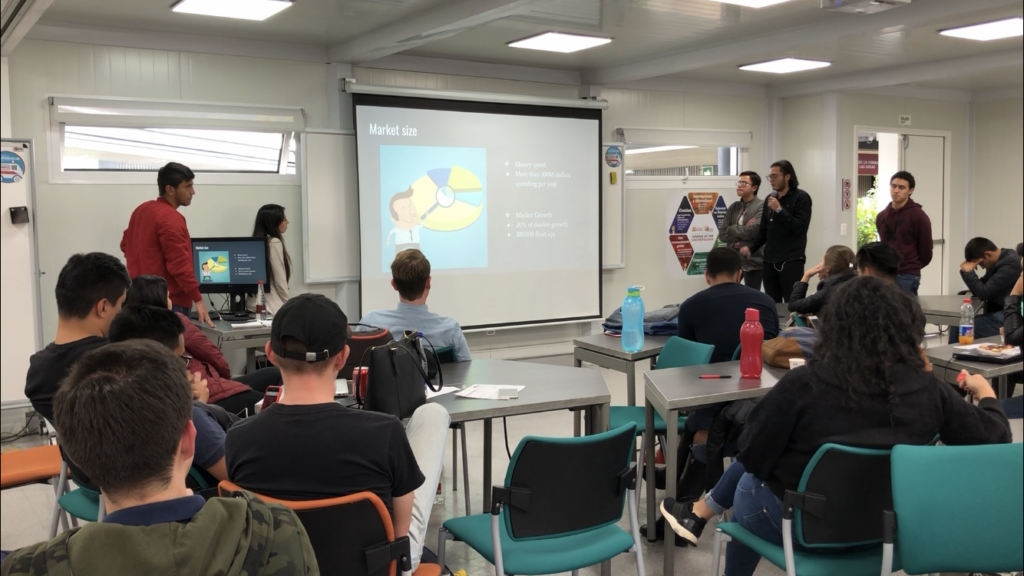
The impact AI will have on the careers of knowledge workers is just getting started. Right now, that impact is easiest to spot when you look at the astronomical starting salaries for data scientists and machine learning specialists.
But AI will create needs for skills that reach further and further corners of organizations, similar to how marketing departments seek out more and more personnel skilled in analytics and data-driven approaches.
Universities, like most categories of education, are struggling to find ways to give their students exposure to these new ways of working. Simply hearing a data scientist give a lecture is not enough. Students need to get hands-on with the concepts and technologies to gain AI literacy.
We were thrilled to receive an invitation to Universidad Rosario in Bogota, Colombia to deliver a course where 90 students receive direct access to an AI NLP to explore entrepreneurial concepts. The engagement went as follows:
| Goal | Equip students with AI literacy and the entrepreneurial mindset |
| Learning Outcomes | Gain hands-on experience with machine learning, deep learning, and AI; use a prototype of these technologies as a vehicle to generate and develop ideas for new ventures |
| Where | Universidad Rosario, School of Administration and Business (Bogotá, Colombia) |
| Duration | 2-day course |
| Audience | 90 undergraduate students |
My colleague Vanessa and I kicked off the day with an overview of the umbrella of technologies that constitute AI before shifting to an extended session where teams experimented with an AI prototype. In these sessions, students were challenged to consider problems where algorithms trained on different datasets could provide benefit.
As they considered ideas for ventures, teams brainstormed and researched a wide range of verticals and categories, including investor education, virtual assistants, environmentally conscious fashion, and patient monitoring systems.

Next, students used the Pitch Elements Canvas to prepare themselves to gather feedback on their concepts before diving deep into customer discovery. From there, teams continued to experiment with our GPT-2 prototype to refine the vision and product roadmap of their offerings.


Energy was high, and as always the case with new ventures, teams experienced ups and downs. After more and more feedback, the students developed branding and crafted elegant pitches summarizing risks and opportunities. Students dug in, welcomed the challenge of familiarizing themselves with emerging technology, and closed out the course with excellent pitches and explainer videos for their ideas.
By the end of the course, teams had developed ventures addressing areas such as first responder communication, workout partner matching for triathletes, customer review management, investment participation for the underbanked, and more.

This two-day course at Universidad Rosario bridged the gap between theoretical AI knowledge and practical application in a business context. By providing hands-on experience with AI technologies, students not only gained valuable AI literacy but also developed critical thinking skills essential for identifying innovative business opportunities.
The combination of AI experimentation, idea generation, and startup methodology gave these undergraduates a unique advantage in preparing for the AI-driven future of work.
As AI continues to reshape industries, initiatives like this course play a crucial role in equipping the next generation of entrepreneurs with the tools and mindset needed to thrive in an increasingly tech-driven business landscape.